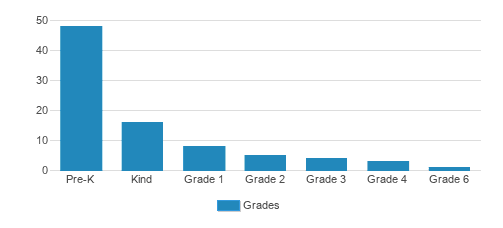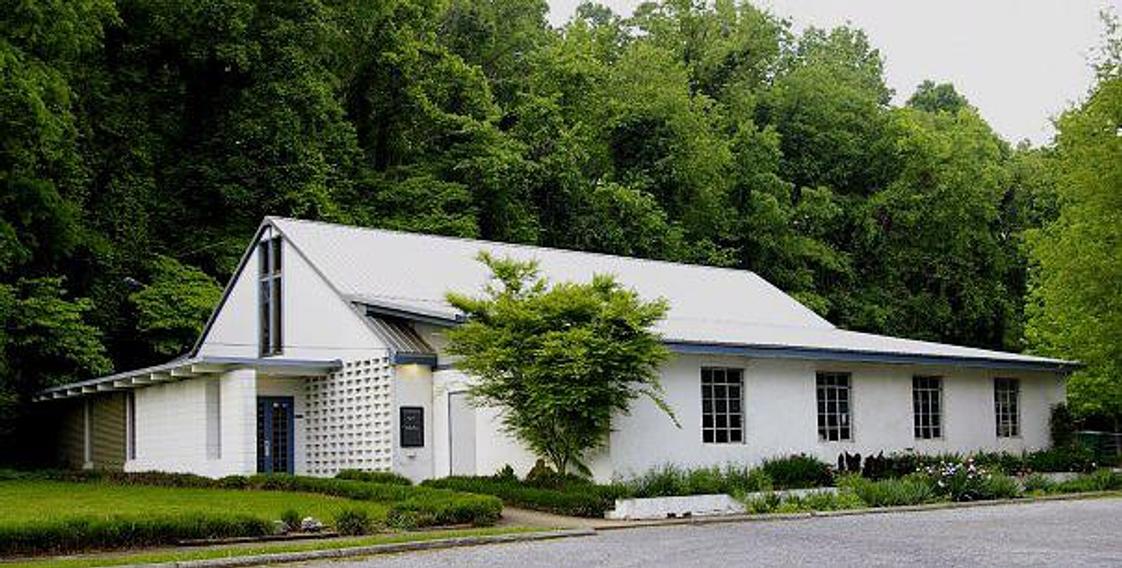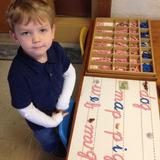NHMS is dedicated to helping students reach their human potential by providing an authentic Montessori environment with trained and experienced guides.
School Overview
School Type
Religious Affiliation
Grades Offered
Grades Prekindergarten-8
Learning Difference Programs
Yes
Learning Programs Supported
Mild learning differences
Year Founded
1978
Student Body
Total Students
104 students
Student Body Type
Co-ed
% Students of Color
4%
State avg.: 20%
Students by Grade

Academics and Faculty
Total Classroom Teachers
11 teachers
Student : Teacher Ratio
9:1
National avg.: 13:1
% Faculty w/Advanced Degree
30%
Tuition and Acceptance Rate
Admission Deadline
None / Rolling
Yearly Tuition Cost
% on Financial Aid
5%
Average Financial Aid Grant
$3,000
Admissions Director
Aleta Ledendecker
Extracurriculars
Total ExtracurricularsTotal Extra-curric.
1 extracurricular
ExtracurricularsExtra-curric.
Orff Music program
School Notes
- Children learn best through intrinsic motivation. There are neither rewards nor punishments in true Montessori environments. Adults acknowledge and encourage the effort that has gone into children’s work, but ultimately want the children to independently appreciate and value their own products. Likewise, adults do not mark errors, but instead make a note to help the child overcome any misunderstanding of concepts that may have lead to the errors.
- Children learn best when they have control over their learning. Adults give many interesting lessons with the materials to children, but it is ultimately the choice of the student that leads the learning. Adults must respect the developmental processes that lead children to choose what is best for them at any particular time. If there is concern that a child is avoiding specific areas it is the responsibility of the adults to find ways to inspire interest rather than imposing leaning upon them.
- Concentration must be encouraged and protected to allow optimal development. Visitors are asked to respect the children’s focus and concentration. They should not initiate conversations with children or even pay too much attention to those who are working as that may cause a disruption of concentration. Parents who wish to contribute to the school may do so in ways that don’t impact the classroom during the critical work cycle.
- Montessori is education for peace. Children are actively taught how to develop interpersonal skills that will result in their being empathetic to others. Games involving violence are prohibited. Parents are strongly encouraged to refrain from allowing children access to violence on television or in video games. In fact, it is best for children under the age of seven to have very limited exposure to video games and television in order to encourage brain development through three-dimensional interaction with the environment.
- Competition hinders learning. Whenever learning is tied to competition for recognition, grades or praise there is a marked decrease in retention and enjoyment. Children are not compared to one another. Instead, they learn to monitor their own progress in order to recognize self-growth. This leads to personal satisfaction based on effort instead of comparisons or concern about what others may have accomplished. The multi-age classroom aides in this non-competitive approach since children can associate with social, emotional, chronological or academic peers as needed.
- Montessori develops self-discipline and independence. Children in a Montessori environment learn to be responsible for their choices. The teacher as an authority figure fades from the forefront. The prepared Montessori environment uses incremental levels of difficulty built into the materials. Children come to rely on their own intellect to recognize when they need to change their activity. They become truly self-disciplined with much less need for adult intervention. Visitors are often struck by the calm atmosphere that emanates from this self-discipline. Montessori said that whenever adults do things for the children that they can do for themselves, it hinders their development. Children learn to take care of themselves and their environment. The Montessori school is considered a “Children’s House.â€
- Montessori education paints with a broad brush before adding the details. It is important for children to learn the bigger picture and basic concepts before learning the details. This helps children organize new information in ways that make it easier to learn and remember. The Montessori approach also rests upon providing concrete examples of abstract concepts and gradually allowing children to develop more abstract understanding.
- Montessori encourages real life experiences for young children. There is so much wonderful information for children to learn that fantasy is not part of the curriculum in a Montessori early childhood classroom. Children relish learning about real things. Most fantasy is imposed on children from the imagination of adults and is not generated by children. Children on the other hand, develop creativity and imagination through interaction with their wondrous world and use of the hands-on materials that open that world to them.
- Montessori is education for life. The Montessori approach is fully integrated over a multi-age span. It is not designed as a quick fix for children who may be struggling in more traditional environments. It is designed to help them develop fully as individuals, not just academically, but as whole people. It is best to plan for enrollment of at least three full years. This allows time for children to integrate the philosophy into the way they learn so that they can carry that love of learning with them throughout life.
- As parents about to embark on this exciting and wonderful journey in Montessori, it is important that you seriously consider whether these principles are coherent with your approach to parenting. Children thrive in Montessori environments provided the family supports the efforts made at school. We want this be a good fit so your child does not feel any conflict over divergent expectations between school and home.
Source: Verified school update
Frequently Asked Questions
How much does Little River Montessori School cost?
Little River Montessori School's tuition is approximately $6,950 for private students.
When is the application deadline for Little River Montessori School?
The application deadline for Little River Montessori School is rolling (applications are reviewed as they are received year-round).
Recent Articles

A Parent's Guide To Understanding High School Teaching Methods
This comprehensive guide helps parents navigate the various teaching methods used in today's high school classrooms. By understanding these approaches, you'll be better equipped to support your teen's learning journey, communicate effectively with teachers, and create a complementary learning environment at home.

February 08, 2025
Social Emotional Learning: Education's Hidden SymphonyA musician's perspective on Social Emotional Learning reveals how this educational framework orchestrates success through five essential emotional competencies.

January 24, 2025
A Roadmap For Starting A Private SchoolUse this roadmap as a set of talking points with your trusted mentors and professionals to start the private school of your dreams. You're not alone. Over the years, hundreds of folks like you have had the same dream. From Quintilian to Maria Montessori to Lucy Madeira Wing, visionary educators have established schools to teach according to their beliefs and methodologies.



















